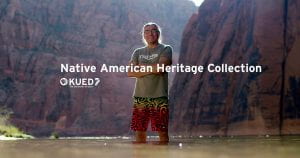Native American heritage is an important part of the history and culture of the Americas. Like many other descendant community cultures, many of the traditions and ways of life are at risk of dying out. Many organizations, both within the government and provide non-profit organizations, strive to work with tribes, craftspeople, and the public to ensure the survival of traditions and to education people about the importance of such heritages. Within the government, the leading body in preservation is the

from doi.org Indian Arts and Crafts Board
National Park Service. The National Historic Preservation Act mandates that the Secretary of the Interior (through the NPS) establish a National Tribal Preservation Program. The program works to preserve traditions and resources important to Native American tribes, Native Hawaiian organizations, and Native Alaskan communities. One of the main programs it offers is the Tribal Historic Preservation Officers (THPO) program which is specific to federally recognized tribes. These tribes are able to submit forms to petition for the assignment of a THPO who acts in the same manner as the State Historic Preservation Officer but is in charge of tribal resources rather than the entire state’s resources. Once a THPO is granted the tribe is then eligible to receive Historic Preservation Fund (HPF) grants which provide funding for locating and identifying cultural resources, preserving historic structures listed in the National Register, creating comprehensive preservation plans, documenting oral histories and traditions, and building a Historic Preservation Program. The THPO program was first initiated in 1990 and in 1996 twelve tribes were approved to assign a THPO. In 2018 180 THPOs have been approved. Pennsylvania’s Delaware tribe is not among those recognized or approved so the THPO officer responsible for this state’s First Nation resources is from the Seneca Nation in New York. The issue of federal recognition was discussed in a previous post which can be accessed here.
Because many tribes are not federally recognized, such as the Delaware from Pennsylvania, and are not eligible for a THPO and federal support, more localized organizations take on the responsibility of preserving traditions and educating the public about their culture. One such organization is the Native American Heritage Programs group focusing on celebrating the Lenape culture. The group provides educational programs and tools to schools, libraries, historical societies, and other groups. They have a traveling educational group that will bring the culture to the students. This in person experience tends to make more of an impact on students (child and adult alike) than do reading about the culture. One slightly less localized program is PBS Utah’s Native American Heritage Collection which has created many documentaries on the First Nation tribes located in Utah. These documentaries focus on giving a voice to the people and tackle not only culture but also topics such as Native American boarding schools, veteran treatment, and the Bears Ears Monument debate. These documentaries can be found here.
Programs such as these are important to preserving the heritage that this month celebrates. Not only is it important just to record the oral histories, traditions, craftmanship, and culture of descendant communities, but it is also important to educate the public about them and their significance. It is quite likely that most people do not realize that these ways of life are in danger of becoming extinct or even that modern day tribes still retain traditions dating back hundreds or thousands of years. Unfortunately, government programs focus almost solely on federally recognized tribes with little regard for the unrecognized tribes. Thankfully, many other organizations have been trying to record all of the traditions from every group possible. The more the public is aware of the need for preservation, the more likely they are to help in that preservation.
Sources: https://lenapeprograms.info/about/, https://www.nps.gov/history/tribes/Tribal_Historic_Preservation_Officers_Program.htm
Follow IUP Anthropology on Facebook, Twitter, and Instagram

